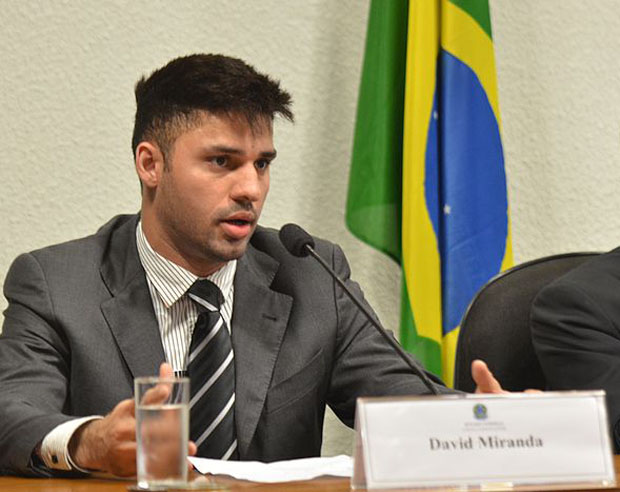
The law is a strange animal. It had been suggested to me before now that the ruling in the by the court of appeal in the case of David Miranda’s detention would be “interesting”, and so it has proved. In a court of appeal judgment handed down this morning, Lord Dyson – the Master Of The Rolls – Lord Justice Richards and Lord Justice Floyd agreed that while it had been within the law to stop Miranda at Heathrow and take some journalistic materials from him, the power under which he was stopped is not compatible to the European Convention’s protections for free expression.
To recap. In August 2013 Miranda, the partner of journalist Glenn Greenwald, was carrying materials relating to Edward Snowden’s NSA leaks when he was stopped at Heathrow and detained. Miranda had been to Berlin to see CitizenFour director Laura Poitras in Berlin, and was returning to Greenwald in Rio. There followed a legal challenge to the detention by the Guardian, for whom Greenwald then worked, with the backing of the NUJ, several newspapers, and civil liberties and free speech organisations including Index on Censorship (for whom I then worked). In January 2014, that challenge was dismissed. That decision was appealed by Miranda, supported by Liberty, Article 19, English PEN and the Media Legal Defence Initiative. And that leads us to today’s interesting position. The court has said that Schedule 7 of the Terrorism Act 2000 (TACT), which allows officers to stop people on the merest suspicion or hunch that they may just be carrying something that possibly might be useful to a terrorist, is not compatible with the rights of journalists and associates to protect materials and sources.
“Miranda and Greenwald are to be admired for pursuing this case”
Jo Glanville of English PEN has stated: “While it is disappointing that the appeal was not successful on all grounds, this is a significant victory for press freedom, remedying a very worrying gap in the law for safeguarding journalistic material and sources. The seizure of David Miranda’s data set a disturbing precedent on a story of global importance and we are relieved that the Court has recognised the fundamental necessity of protecting confidentiality for journalists.”
It is certainly disappointing for Miranda, who will still feel that terror laws were unjustly used against him while he assisted in a journalistic endeavour (i.e. the publication of the Snowden revelations). But his struggle may not have been in vain. Miranda and Greenwald are to be admired for pursuing this case to the point where a court has clearly stated that this anti-terror law is too arbitrary and discretionary to be used against media workers who have a right to confidentiality. The suggestion made by the Master Of The Rolls is that parliament must now resolve the anomaly between this power and the Human Rights Act which enshrines Article 10 of the European Convention in British law. In essence, this is now the Home Secretary’s problem. Over to you. Theresa May.
*Disclosure: 89upLtd, which publishes Little Atoms, has carried out paid work on the promotion of CitizenFour, Laura Poitras’ film about Edward Snowden